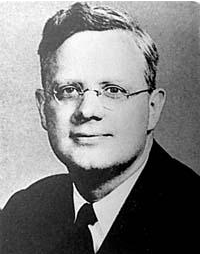Robert Bowie
(spook, academic, deep state actor) | |||||||||||||||||||||||
|---|---|---|---|---|---|---|---|---|---|---|---|---|---|---|---|---|---|---|---|---|---|---|---|
 | |||||||||||||||||||||||
| Born | August 24, 1909 | ||||||||||||||||||||||
| Died | November 2, 2013 (Age 104) | ||||||||||||||||||||||
| Nationality | US | ||||||||||||||||||||||
| Alma mater | Princeton University, Harvard University | ||||||||||||||||||||||
| Member of | Bohemian Grove, Council on Foreign Relations/Historical Members, Trilateral Commission, Weatherhead Center for International Affairs | ||||||||||||||||||||||
US deep state actor who wrote item one of the agenda of the 1966 Bilderberg on the need to reorganise NATO, and it was done. DDNI 1977-79.
| |||||||||||||||||||||||
Robert Richardson Bowie was an American deep state actor, co-founder with Henry Kissinger and first director of the Weatherhead Center for International Affairs, and a trusted confidant to John J. McCloy who attended the 1957 and 1966 Bilderberg meetings.
Robert Bowie wrote the number 1 item of the Bilderberg 1966's agenda, the need to reorganise NATO.[1] Since that meeting, no one ever became NATO Secretary General without first attending at least one meeting of the Bilderberg.
Education
Born in Baltimore, Maryland, in 1909, Bowie got an A.B. degree from Princeton in 1931 and an LL.B. from Harvard Law School in 1934. [2]
Career
Bowie practiced law in his father’s law firm in Baltimore until 1942, when he joined the U.S. Army with the rank of captain. After the war, he became special assistant to General Lucius Clay, the deputy military governor for Germany, a post he held until 1946.[2]
He then became deputy to Assistant Secretary of War and U.S. High Commissioner for Germany John J. McCloy in postwar Germany,[3] while also teaching at Harvard Law School.
He became director of policy planning and assistant secretary of state under John Foster Dulles (1953-57). In this latter role he was a key figure in forging U.S. foreign policy during the Cold War.[2]
As founder and first director of the Center for International Affairs at Harvard, Bowie presided over a group of scholars that included Edward Mason, Thomas Schelling, and Henry Kissinger. As director of the center, Bowie initiated a program to bring mid-career government officials from around the world to study at Harvard for a year, focusing on issues related to international affairs and foreign policy.[2]
Bowie directed the Center for International Affairs until 1972. In 1977, he returned to Washington to work as deputy director for national intelligence at the Central Intelligence Agency, a position he held until 1979. He retired from Harvard in 1980.[2]
Events Participated in
| Event | Start | End | Location(s) | Description |
|---|---|---|---|---|
| Bilderberg/1957 February | 15 February 1957 | 17 February 1957 | US St Simons Island Georgia (State) | The earliest ever Bilderberg in the year, number 5, was also first one outside Europe. |
| Bilderberg/1966 | 25 March 1966 | 27 March 1966 | Germany Wiesbaden Hotel Nassauer Hof | Top of the agenda of the 15th Bilderberg in Wiesbaden, Germany, was the restructuring of NATO. Since this discussion was held, all permanent holders of the position of NATO Secretary General have attended at least one Bilderberg conference prior to their appointment. |